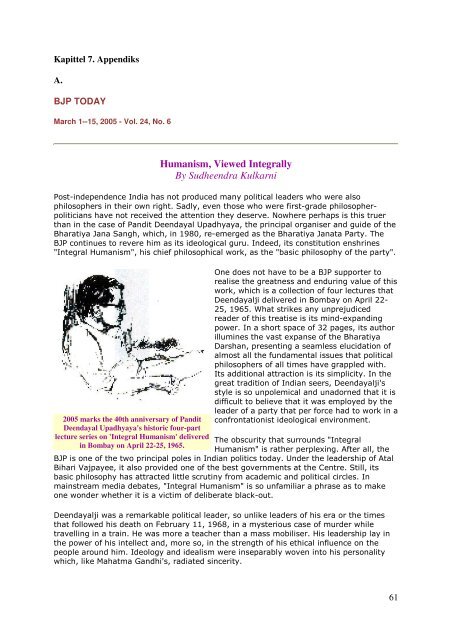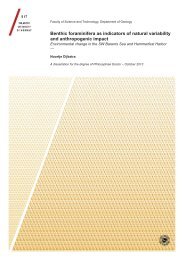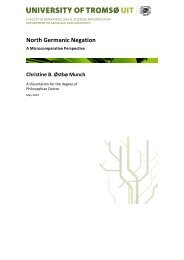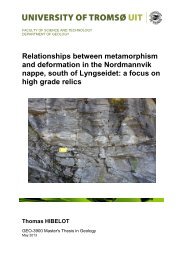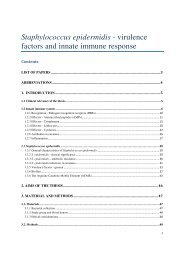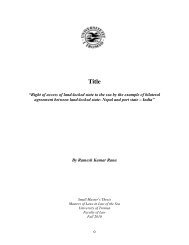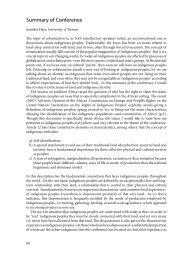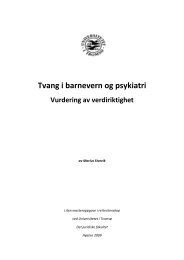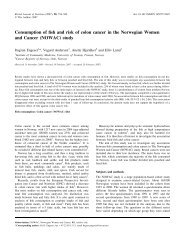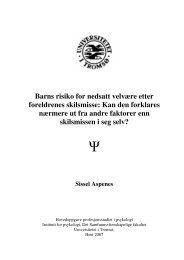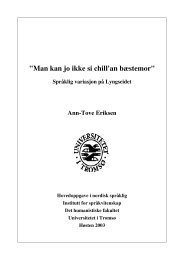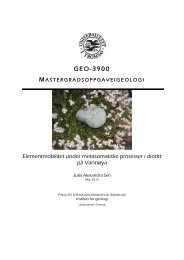Hindutva, Hindunasjonalisme og Bharatiya Janata Party En ...
Hindutva, Hindunasjonalisme og Bharatiya Janata Party En ...
Hindutva, Hindunasjonalisme og Bharatiya Janata Party En ...
You also want an ePaper? Increase the reach of your titles
YUMPU automatically turns print PDFs into web optimized ePapers that Google loves.
Kapittel 7. Appendiks<br />
A.<br />
BJP TODAY<br />
March 1--15, 2005 - Vol. 24, No. 6<br />
Humanism, Viewed Integrally<br />
By Sudheendra Kulkarni<br />
Post-independence India has not produced many political leaders who were also<br />
philosophers in their own right. Sadly, even those who were first-grade philosopherpoliticians<br />
have not received the attention they deserve. Nowhere perhaps is this truer<br />
than in the case of Pandit Deendayal Upadhyaya, the principal organiser and guide of the<br />
<strong>Bharatiya</strong> Jana Sangh, which, in 1980, re-emerged as the <strong>Bharatiya</strong> <strong>Janata</strong> <strong>Party</strong>. The<br />
BJP continues to revere him as its ideol<strong>og</strong>ical guru. Indeed, its constitution enshrines<br />
"Integral Humanism", his chief philosophical work, as the "basic philosophy of the party".<br />
2005 marks the 40th anniversary of Pandit<br />
Deendayal Upadhyaya's historic four-part<br />
lecture series on 'Integral Humanism' delivered<br />
in Bombay on April 22-25, 1965.<br />
One does not have to be a BJP supporter to<br />
realise the greatness and enduring value of this<br />
work, which is a collection of four lectures that<br />
Deendayalji delivered in Bombay on April 22-<br />
25, 1965. What strikes any unprejudiced<br />
reader of this treatise is its mind-expanding<br />
power. In a short space of 32 pages, its author<br />
illumines the vast expanse of the <strong>Bharatiya</strong><br />
Darshan, presenting a seamless elucidation of<br />
almost all the fundamental issues that political<br />
philosophers of all times have grappled with.<br />
Its additional attraction is its simplicity. In the<br />
great tradition of Indian seers, Deendayalji's<br />
style is so unpolemical and unadorned that it is<br />
difficult to believe that it was employed by the<br />
leader of a party that per force had to work in a<br />
confrontationist ideol<strong>og</strong>ical environment.<br />
The obscurity that surrounds "Integral<br />
Humanism" is rather perplexing. After all, the<br />
BJP is one of the two principal poles in Indian politics today. Under the leadership of Atal<br />
Bihari Vajpayee, it also provided one of the best governments at the Centre. Still, its<br />
basic philosophy has attracted little scrutiny from academic and political circles. In<br />
mainstream media debates, "Integral Humanism" is so unfamiliar a phrase as to make<br />
one wonder whether it is a victim of deliberate black-out.<br />
Deendayalji was a remarkable political leader, so unlike leaders of his era or the times<br />
that followed his death on February 11, 1968, in a mysterious case of murder while<br />
travelling in a train. He was more a teacher than a mass mobiliser. His leadership lay in<br />
the power of his intellect and, more so, in the strength of his ethical influence on the<br />
people around him. Ideol<strong>og</strong>y and idealism were inseparably woven into his personality<br />
which, like Mahatma Gandhi's, radiated sincerity.<br />
61


